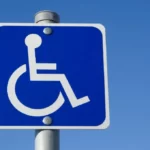
Hello everyone, and welcome to this article on PregnancyBoss where we’re going to dive into the world of aches and pains of pregnancy. We know firsthand how challenging these can be, as we’re navigating them ourselves. So, whether you’re a mom-to-be or just curious about the journey, join us as we explore common pregnancy pains and what you can do about them.
Related: How to Deal with Pregnancy Insomnia?
Why do you feel these aches and pains of Pregnancy?
Pregnancy is an incredible journey, but it can also bring its fair share of discomfort. As your body changes, it undergoes shifts in weight, center of gravity, and hormonal levels. These factors can lead to various aches and pains, often associated with the increased strain on your pelvic region and spine.
Related: How to Deal with Pregnancy Constipation?
What are the common aches and pains of Pregnancy?

During pregnancy, it is common to experience aches and pains that vary from person to person. Some of the most common aches and pains include:
Round ligament pain: Lightning crotch
One of the early discomforts you might encounter is round ligament pain, humorously known as “lightning crotch.” This sensation arises due to the stretching of the round ligaments that support your growing uterus. You may feel it when changing positions suddenly or during activities like sneezing, coughing, or even exercise. While usually short-lived, it can last throughout pregnancy.
SI joint pain: Tailbone troubles
Around the 18 to 20-week mark, many women experience SI joint pain. The sacroiliac (SI) joints connect your sacrum (tailbone) to your pelvis and are typically stable. However, pregnancy hormones and muscle changes can lead to joint laxity and instability. SI joint pain is often felt in the lower back and can be sharp or achy, exacerbated by standing, walking, or sitting for extended periods.
Symphysis pubis dysfunction (SPD): Splitting sensations
Symphysis Pubis Dysfunction, or SPD, can make you feel like your pelvis is about to split in half. The pubic symphysis, where the two halves of your pelvis meet in the front, can become painful due to hormone-induced joint laxity. Walking, rolling over in bed, or any movement that shifts your balance can worsen the discomfort. Fortunately, SPD often resolves within three months after delivery.
Sciatica: Shooting pain down the leg
Sciatica during pregnancy is no joke. The sciatic nerve, running from your lower back through your buttocks and down the leg, can become pinched due to changes in posture, weight distribution, and muscle weaknesses. This can result in intense shooting pain. While it’s challenging to fully resolve sciatica during pregnancy, physical therapy, stretching, and strength training exercises can help.
Related: How to Deal with Pregnancy Fatigue
What can you do about these aches and pains of Pregnancy?

So, what can you do to alleviate these pregnancy-related aches and pains? Here are some tips and tricks:
- Talk to Your Doctor: If you’re experiencing pain, don’t hesitate to consult your healthcare provider. They can provide guidance and referrals to specialists if needed.
- Physical Therapy: Consider physical therapy for exercises and techniques that strengthen the muscles supporting your pelvic girdle and spine.
- Support Belts: Some women find relief by wearing support belts, such as the AZ Med belt, which can stabilize the pelvic region.
- Strength Training: Focus on strength training and exercises that promote core stability. Building strength can help reduce the risk and severity of these pains.
- Modifications: Modify daily activities that exacerbate pain. Take shorter strides, use a swivel motion when getting out of a car or rolling over in bed, and wear slip-on shoes to avoid bending over.
- Rest and Relief: Don’t push yourself too hard. Rest when needed, apply heating pads, try gentle stretching, and consider over-the-counter pain relief options like Tylenol (always consult your doctor before taking any medication during pregnancy).
Remember, while these pregnancy pains can be challenging, relief often comes with the delivery of your precious baby. In the meantime, take care of yourself, stay proactive, and don’t hesitate to seek support from your healthcare team.
Related: Sacroiliac Joint Pain During Pregnancy: A Comprehensive Guide
Conclusion
Pregnancy can indeed be a pain in the back, neck, and various other places, but it’s all part of the incredible journey to motherhood. Understanding the causes and potential solutions for these aches and pains can make your pregnancy experience more comfortable. So, whether you’re dealing with round ligament pain, SI joint discomfort, SPD, or sciatica, know that you’re not alone, and there are steps you can take to find relief.
As always, we’re here to provide information and support. Please share your own experiences, tips, or questions in the comments below, and remember, you’re not just enduring these pains; you’re creating life.
Related: Do Guys Sleep A Lot When They Get A Girl Pregnant?
Frequently Asked Questions (FAQs)
What are the most common aches and pains of pregnancy?
The most common aches and pains of pregnancy include nausea and vomiting, heartburn, backache, restless leg syndrome, rib pain, varicose or spider veins, and hemorrhoids.
How can I cope with aches and pains of pregnancy?
Coping with aches and pains of pregnancy can be challenging, but there are several ways to manage discomfort. These include regular exercise, massage, heat therapy, rest, and proper nutrition.
Is it safe to exercise during pregnancy?
Yes, regular exercise is safe and recommended during pregnancy. Walking, swimming, and prenatal yoga are excellent options for pregnant women.
Can massage help alleviate aches and pains of pregnancy?
Yes, massage can help alleviate aches and pains of pregnancy. Prenatal massage is a safe and effective way to reduce stress, improve circulation, and relieve muscle tension.
What should I eat to alleviate aches and pains of pregnancy?
Eating a healthy, balanced diet is essential during pregnancy. A diet rich in fruits, vegetables, whole grains, and lean protein can help alleviate aches and pains and promote overall health.
When should I consult with my healthcare provider about aches and pains during pregnancy?
If you experience severe or persistent pain, it is essential to consult with your healthcare provider. They can help determine the cause of the pain and recommend appropriate treatment options.











